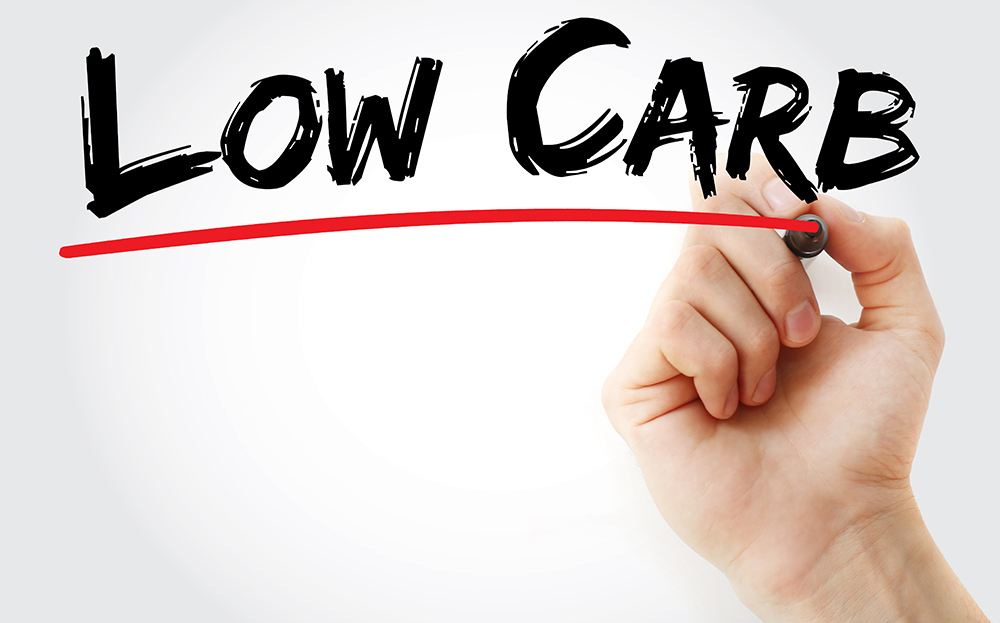Introduction
Low-carb diets have been a popular weight loss and health trend for decades, with various approaches and protocols emerging over the years. Some popular low-carb diets include the ketogenic diet, paleo diet, and Atkins diet.
In general, a low-carb diet involves reducing the intake of carbohydrates, particularly refined and added sugars, in favor of protein and healthy fats. The goal of a low-carb diet is often to promote weight loss and improve various health markers, such as blood sugar control and heart health.
However, low-carb diets are not without controversy and have received criticism from some in the medical and nutrition communities. In this blog post, we'll explore the pros and cons of low-carb diets, as well as who may benefit from this type of diet and who should avoid it. We'll also discuss how to safely follow a low-carb diet and the importance of consulting with a healthcare professional before making any significant changes to your diet.
The Pros of Low-Carb Diets
 There are several potential benefits to following a low-carb diet. Some of the most commonly cited benefits include:
There are several potential benefits to following a low-carb diet. Some of the most commonly cited benefits include:
· Weight Loss – Low-carb diets may be effective for weight loss, at least in the short term. By reducing carbohydrate intake, the body is forced to use stored fat for energy, which can lead to weight loss.
· Improved Blood Sugar Control – Low-carb diets may help improve blood sugar control in individuals with type 2 diabetes or prediabetes. By reducing carbohydrate intake, blood sugar levels may be better regulated, potentially leading to improved blood sugar control.
· Potential Benefits for Heart Health – Some studies have suggested that low-carb diets may improve markers of heart health, such as blood pressure and cholesterol levels. However, more research is needed to fully understand the effects of low-carb diets on heart health.
It's important to note that while there may be some potential benefits to following a low-carb diet, it's not a one-size-fits-all approach and may not be suitable for everyone. It's always a good idea to consult with a healthcare professional before making any significant changes to your diet.
The Cons of Low-Carb Diets
 While low-carb diets may have some potential benefits, there are also drawbacks to consider. Some of the potential drawbacks of low-carb diets include:
While low-carb diets may have some potential benefits, there are also drawbacks to consider. Some of the potential drawbacks of low-carb diets include:
· Short-Term Side Effects – When starting a low-carb diet, some people may experience what's known as the "keto flu," which can include symptoms such as headache, fatigue, dizziness, and nausea. These side effects are generally temporary and resolve within a few days to a week.
· Lack of Flexibility in Food Choices – Low-carb diets can be restrictive, as they often involve eliminating or significantly reducing the intake of certain food groups, such as grains, legumes, and starchy vegetables. This can make it difficult to follow the diet long-term and may lead to feelings of deprivation.
· Potential for Nutrient Deficiencies – By eliminating or reducing certain food groups, there is a risk of not getting enough essential nutrients, such as fiber, vitamins, and minerals. It's important to ensure that a low-carb diet is well-balanced and includes a variety of nutrient-dense foods to avoid potential deficiencies.
Again, it's important to note that low-carb diets may not be suitable for everyone and it's always a good idea to consult with a healthcare professional before making any significant changes to your diet.
Who May Benefit from a Low-Carb Diet
 While low-carb diets may not be suitable for everyone, there are certain individuals who may benefit from this type of diet. Some of the individuals who may benefit from a low-carb diet include:
While low-carb diets may not be suitable for everyone, there are certain individuals who may benefit from this type of diet. Some of the individuals who may benefit from a low-carb diet include:
· Individuals with Obesity or Weight to Lose – Low-carb diets may be effective for weight loss and may be particularly helpful for individuals with obesity. However, it's important to note that weight loss is not always easy to achieve, and maintaining a healthy weight requires a balanced diet and regular physical activity.
· Those with Type 2 Diabetes or Prediabetes – Low-carb diets may help improve blood sugar control in individuals with type 2 diabetes or prediabetes. However, it's important to note that low-carb diets should be implemented under the guidance of a healthcare professional, as they may require adjustments to medications and close monitoring.
· Those with High Blood Pressure or High Cholesterol – Some studies have suggested that low-carb diets may improve markers of heart health, such as blood pressure and cholesterol levels. However, more research is needed to fully understand the effects of low-carb diets on heart health.
It's important to remember that everyone is different, and what may work for one person may not work for another. It's always a good idea to consult with a healthcare professional before starting any new diet.
Who Should Avoid a Low-Carb Diet
 While low-carb diets may have some potential benefits, there are certain individuals who should avoid this type of diet. Some of the individuals who should avoid a low-carb diet include:
While low-carb diets may have some potential benefits, there are certain individuals who should avoid this type of diet. Some of the individuals who should avoid a low-carb diet include:
· Children and Adolescents – Low-carb diets may be inappropriate for children and adolescents, as they may not provide sufficient nutrients for proper growth and development. Children and adolescents have unique nutritional needs and it's important to ensure that their diets are well-balanced and include a variety of nutrients.
· Pregnant or Breastfeeding Women – Low-carb diets may be inappropriate for pregnant or breastfeeding women, as they may not provide sufficient nutrients for both the mother and the developing baby. It's important for pregnant and breastfeeding women to consult with a healthcare professional and a registered dietitian to ensure that their diets are nutritionally adequate.
· Individuals with Kidney Disease or Liver Disease – Low-carb diets may be inappropriate for individuals with kidney or liver disease, as they may put additional strain on these organs. It's important for individuals with kidney or liver disease to consult with a healthcare professional and a registered dietitian to ensure that their diets are nutritionally adequate and do not worsen their condition.
Again, it's important to remember that everyone is different and it's always a good idea to consult with a healthcare professional before starting any new diet.
How to Safely Follow a Low-Carb Diet
 If you're considering following a low-carb diet, there are a few important steps you can take to ensure that you do it safely:
If you're considering following a low-carb diet, there are a few important steps you can take to ensure that you do it safely:
· Consult with a Healthcare Professional – It's always a good idea to consult with a healthcare professional before starting any new diet. They can help you determine whether a low-carb diet is appropriate for you and provide guidance on how to follow the diet safely.
· Include a Variety of Nutrient-Dense, Low-Carb Foods – To ensure that you're getting all of the nutrients your body needs, it's important to include a variety of nutrient-dense, low-carb foods in your diet. Some examples of nutrient-dense, low-carb foods include leafy green vegetables, nuts and seeds, and avocado.
· Keep Track of Carbohydrate Intake and Monitor for Potential Nutrient Deficiencies – It's important to keep track of your carbohydrate intake to ensure that you're getting enough, but not too much. It's also important to monitor for potential nutrient deficiencies and consult with a healthcare professional or registered dietitian if you have concerns.
By following these steps, you can safely follow a low-carb diet and potentially experience some of the potential benefits. However, it's important to remember that low-carb diets are not a one-size-fits-all approach and may not be suitable for everyone. Consult with a healthcare professional before starting any new diet to ensure that it's safe and appropriate for you.
Conclusion
Low-carb diets have been a popular weight loss and health trend for decades, with various approaches and protocols emerging over the years. There are some potential benefits to following a low-carb diet, such as weight loss and improved blood sugar control, but there are also drawbacks to consider, such as short-term side effects, a lack of flexibility in food choices, and the potential for nutrient deficiencies.
It's important to note that low-carb diets are not a one-size-fits-all approach and may not be suitable for everyone. Some individuals who may benefit from a low-carb diet include those with obesity or weight to lose, those with type 2 diabetes or prediabetes, and those with high blood pressure or high cholesterol. However, low-carb diets should be avoided by children and adolescents, pregnant or breastfeeding women, and individuals with kidney disease or liver disease.
If you're considering following a low-carb diet, it's important to consult with a healthcare professional and ensure that you're including a variety of nutrient-dense, low-carb foods in your diet. By following a low-carb diet safely, you may be able to experience some of the potential benefits. However, it's always a good idea to consult with a healthcare professional before making any significant changes to your diet.







